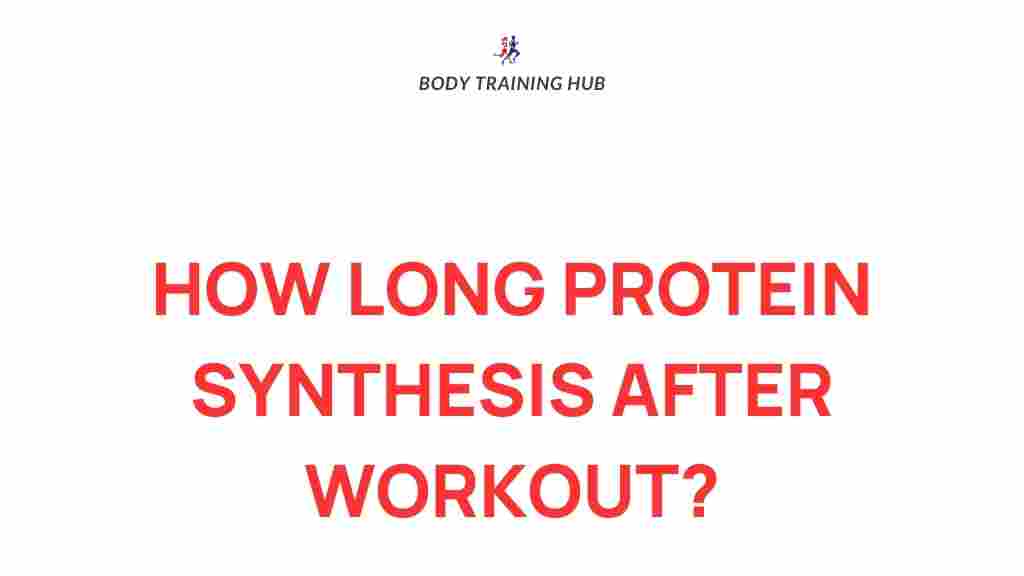Unraveling the Mystery of Post-Workout Protein Synthesis
After an intense workout, many fitness enthusiasts focus on their recovery process, particularly on nutrition and protein intake. One of the most critical aspects of this recovery is protein synthesis, a biological process that plays a pivotal role in muscle recovery and growth. In this article, we will explore how protein synthesis influences your workout results and how to optimize it for better fitness outcomes.
What is Protein Synthesis?
Protein synthesis is the process through which cells create proteins, essential for various bodily functions, including muscle repair and growth. It involves two primary stages: transcription and translation. During transcription, the DNA sequence of a gene is copied to produce messenger RNA (mRNA). In translation, the mRNA is decoded by ribosomes to assemble amino acids into a protein.
The Role of Protein Synthesis in Muscle Recovery
After exercising, your muscles undergo stress and micro-tears. Protein synthesis is crucial for repairing these tears, leading to muscle recovery and growth. Here are some key points regarding the role of protein synthesis:
- Muscle Repair: Protein synthesis helps in repairing damaged muscle fibers, allowing you to recover faster.
- Muscle Growth: A positive protein synthesis rate results in muscle hypertrophy, which is the increase in muscle size.
- Metabolism Boost: Enhancing protein synthesis can lead to improved metabolism, aiding in fat loss and body composition.
How to Maximize Protein Synthesis Post-Workout
To optimize protein synthesis for muscle recovery and growth, consider the following strategies:
1. Timing Your Nutrient Intake
The timing of your nutrient intake is crucial. Consuming protein shortly after your workout can significantly enhance protein synthesis. Aim to eat a meal or snack containing protein within 30 to 60 minutes post-exercise. This period is often referred to as the “anabolic window.”
2. Choosing the Right Protein Sources
Not all proteins are created equal. Here are some excellent sources of protein that can aid in muscle recovery:
- Whey Protein: Rapidly absorbed and ideal for post-workout recovery.
- Casein Protein: Slow-digesting, perfect for overnight recovery.
- Lean Meats: Chicken, turkey, and fish are excellent sources of high-quality protein.
- Plant-Based Proteins: Options like lentils, chickpeas, and quinoa are great for vegetarians and vegans.
3. Incorporating Carbohydrates
Carbohydrates play a significant role in recovery as well. They help replenish glycogen stores depleted during exercise and stimulate insulin release, which aids in protein synthesis. Include complex carbohydrates like:
- Brown rice
- Quinoa
- Sweet potatoes
- Whole grain bread
4. Staying Hydrated
Hydration is vital for overall performance and recovery. Dehydration can impair protein synthesis, so ensure you’re drinking enough water before, during, and after your workout.
5. Getting Enough Sleep
Quality sleep is often overlooked but is essential for effective recovery and muscle growth. During sleep, the body enters a state of repair, where protein synthesis is ramped up. Aim for at least 7-9 hours of quality sleep per night.
6. Consistency in Nutrition
For optimal results, maintain a consistent nutrition plan that aligns with your fitness goals. Regularly incorporating sufficient protein and overall balanced nutrition will promote continual protein synthesis.
Troubleshooting Common Protein Synthesis Issues
Even with the best practices, you might encounter challenges that hinder protein synthesis. Here are some common issues and solutions:
1. Insufficient Protein Intake
If you’re not consuming enough protein, your body won’t have the necessary building blocks for muscle recovery. Consider tracking your protein intake to ensure you meet your daily requirements.
2. Skipping Post-Workout Nutrition
Many individuals tend to overlook their post-workout meal. Make it a priority to consume protein-rich foods or supplements after your workout.
3. Poor Sleep Quality
Stress, anxiety, or other factors can negatively affect your sleep quality. Implement relaxation techniques, such as meditation or deep breathing, to improve your sleep.
4. Overtraining
Excessive training without adequate recovery can lead to diminished returns in muscle synthesis. Ensure you allow sufficient recovery days in your workout routine to prevent overtraining.
Conclusion
Understanding the intricacies of protein synthesis is crucial for anyone looking to improve their workout results, enhance muscle recovery, and achieve their fitness goals. By focusing on proper nutrition, timing, hydration, and sleep, you can maximize protein synthesis and create an environment conducive to muscle growth. Remember, fitness is a journey, and optimizing your protein intake is a vital step towards that journey.
For more insights on nutrition and fitness, check out this comprehensive guide. And for a deeper dive into the science of metabolism, visit this external resource.
This article is in the category Nutrition Fundamentals and created by BodyTraining Team
